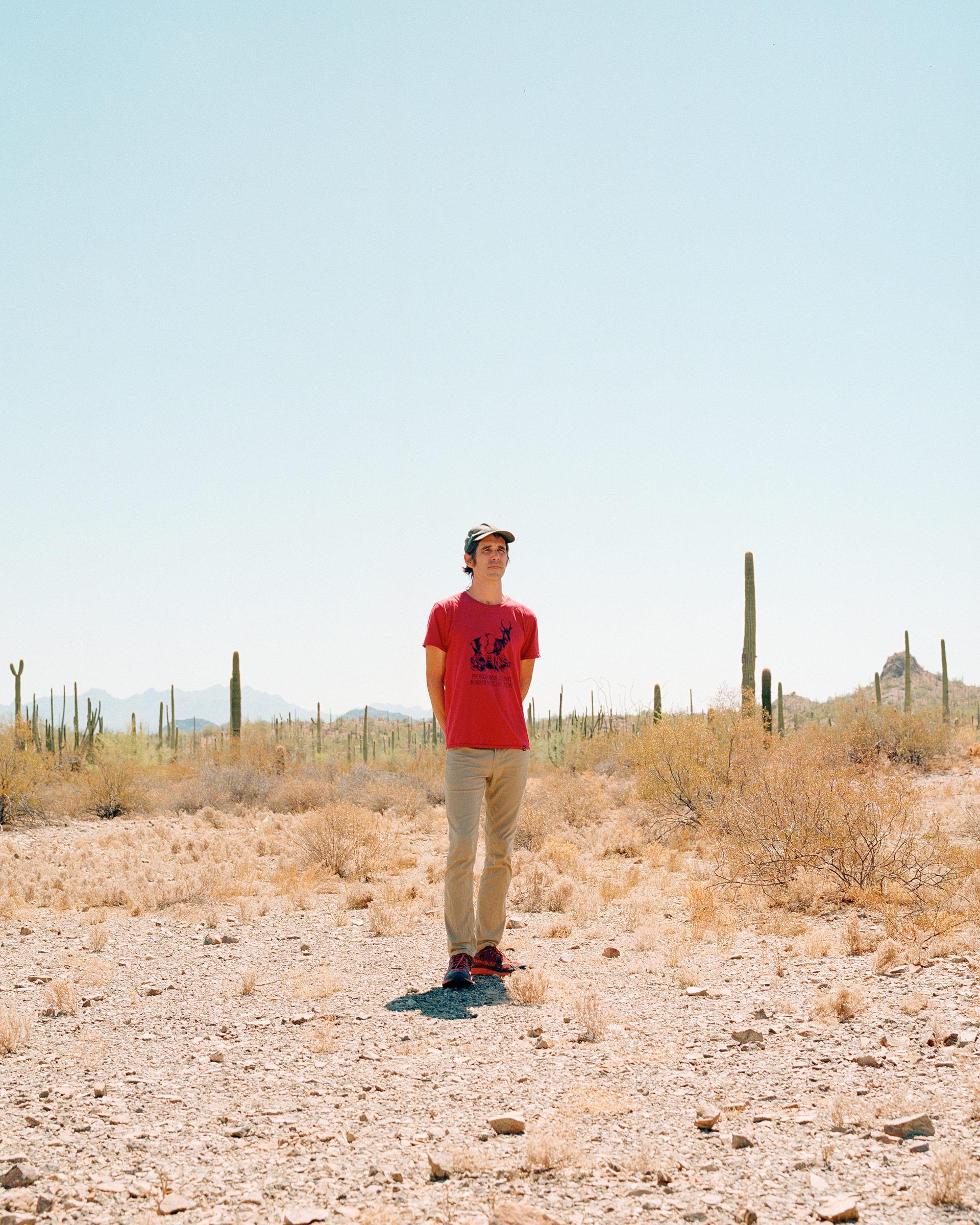
Scott Warren gazes at the desert stretching from Ajo’s palm-studded town plaza to Mexico. Warren credits this scrubby land of rattlesnakes, tarantulas and cacti with transforming him from a university lecturer to a humanitarian aid worker, but it’s a transformation that has come at a steep price.
He has stood trial twice — once on felony and once on misdemeanor charges — and faces a third that could put him in prison for a decade. He’s been thrust from the obscurity of academia into a role he never sought: as the criminal defendant at the center of a politically charged case drawing international attention.
All, Warren says, because he tried to save lives.
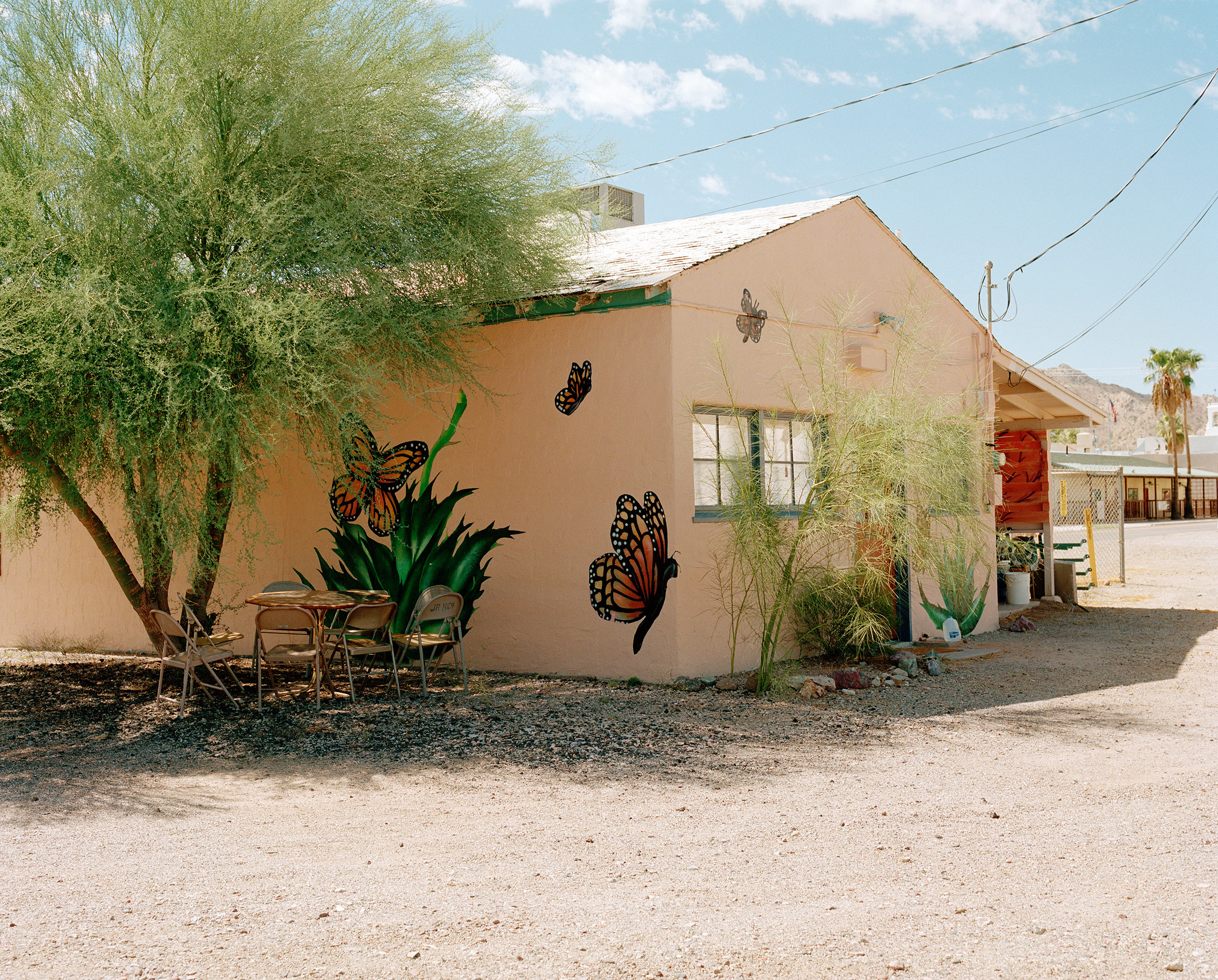
On the afternoon of Jan. 17, 2018, immigration agents descended on a building on the outskirts of Ajo known to be a staging area for aid workers like Warren, who leave water and food in remote desert locations for migrants crossing on foot from Mexico and offer medical care to those in need. Warren was there, speaking with two Central American men who’d recently made the trek. The agents bundled the three men into vehicles and drove to the Ajo Border Patrol station, where Warren spent the night. The next day, he was driven two hours to Tucson, where he was charged with three felony counts: two of harboring undocumented migrants and one of conspiracy to transport and harbor undocumented migrants. The Central American men eventually were deported.
It’s a case that might have gone unnoticed were it not for the message it sent to humanitarian aid workers across the world, who say the rise of nationalist governments has added a dangerous element to the war against migrants. Now, not only are migrants being targeted; the people helping them are, too.
Warren isn’t the first U.S. aid worker to be prosecuted for helping migrants since Donald Trump was elected on a brash anti-immigrant platform, but the charges against him are the most serious so far. His first felony trial ended in a hung jury in June. Prosecutors dropped the conspiracy charge but plan to retry Warren on the harboring allegations. Warren is still awaiting a verdict from a non-jury trial held in May on misdemeanor charges also tied to his volunteer work. The retrial on the felonies begins Nov. 12.
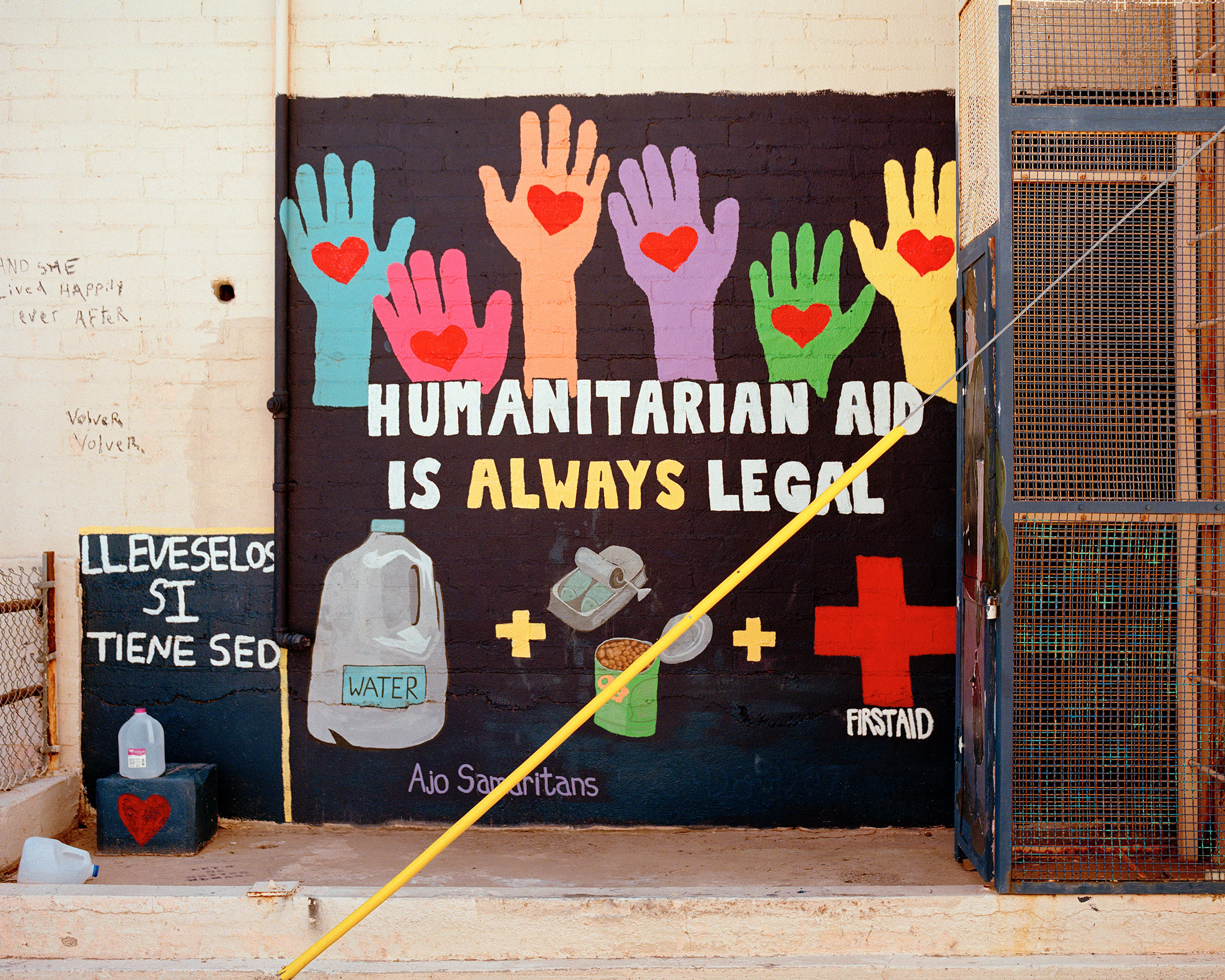
The arrest of Warren “threw up several red flags,” says Brian Griffey of Amnesty International, which has used Warren’s prosecution as a rallying cry for humanitarian workers worldwide as civil wars, persecution, and violence fuel a global migration surge unseen since World War II.
“How alarming it is that the U.S. government and Western European nations are now the perpetrators of creating politically motivated human rights violations against human rights defenders themselves,” says Griffey. Elinor Raikes of the International Rescue Committee says it’s all “part of a broader trend in Europe and the U.S. toward increasingly extreme measures to prevent people crossing their borders.”
Between 2014 and 2018, more than 30,000 people died trying to cross international borders, according to the International Organization for Migration. The most dangerous frontier by far was the Mediterranean Sea, where more than 17,000 men, women and children drowned. During the same period, at least 1,871 died at the southern U.S. border with Mexico.
It’s impossible to say how many U.S. aid workers have been prosecuted since Donald Trump’s election, though the Trump Administration made clear in a speech by then-Attorney General Jeff Sessions in April 2017 that it planned to step up its pursuit of anyone suspected of aiding undocumented migrants. A data-gathering organization based at Syracuse University says the number of people prosecuted in the United States for charges related to bringing in or harboring undocumented migrants was more than 5,200 in fiscal year 2019, a 25.6 percent increase over 2018. Those numbers, obtained by the Transactional Records Access Clearinghouse through Freedom of Information Act requests, don’t specify how many cases involved humanitarian workers.
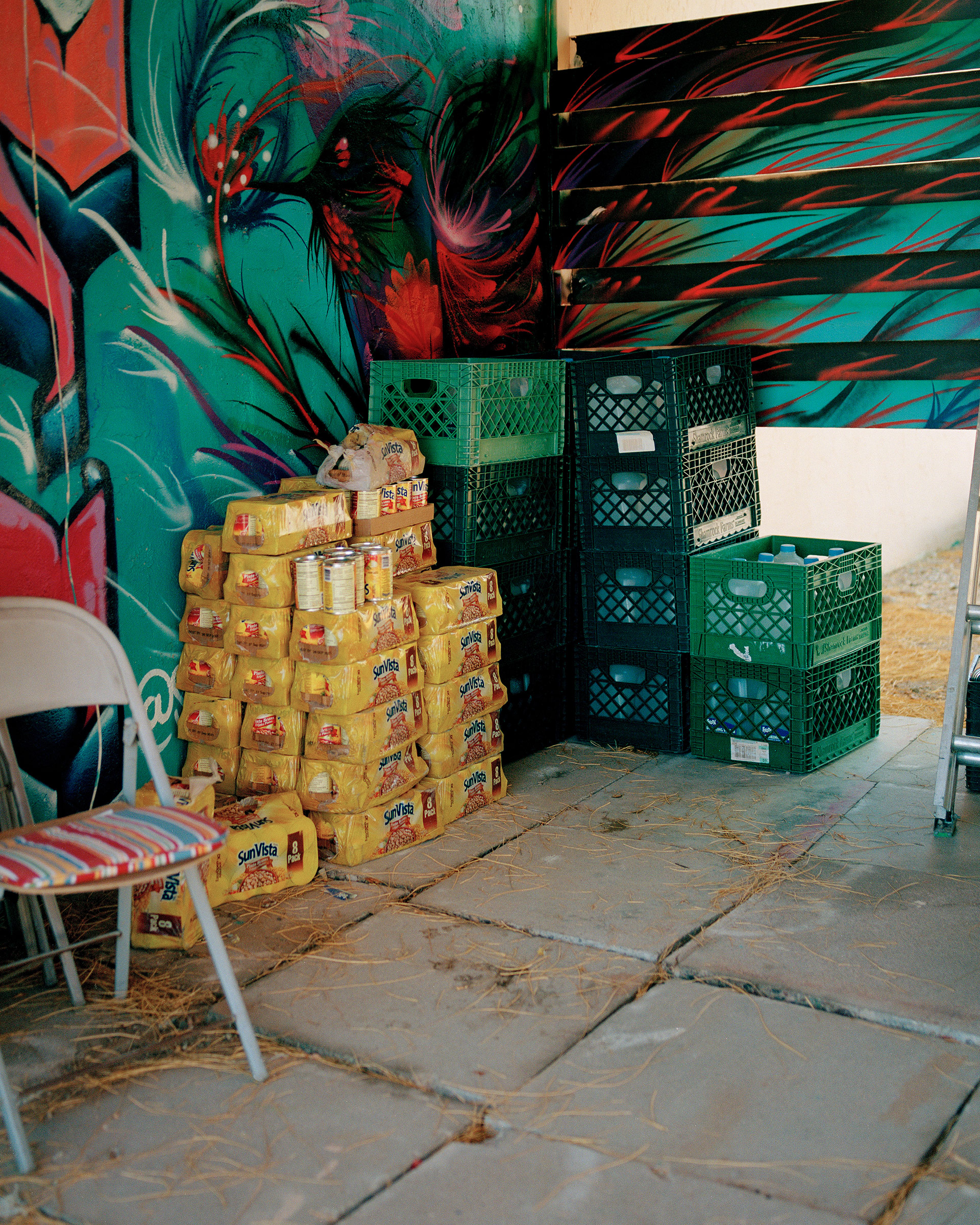
In Europe, the monitoring group ReSoma says the number of humanitarian workers arrested, investigated or prosecuted for helping migrants rose from 10 in 2015 to more than 100 in 2018. The group does not yet have numbers for 2019. According to a TIME analysis of data compiled by OpenDemocracy, ReSoma and the Institute of Race Relations, at least 188 people have been targeted for helping migrants in Europe since 2015.
Warren never expected to be arrested when he began volunteering with the group No More Deaths five years ago. “It was definitely a surprise, and it sort of continued to be a surprise as the prosecutors continued to push the case even after the mistrial,” Warren, 37, tells TIME in one of the few interviews he’s given since the hung jury. As he faces his next trial, Warren worries that others will be caught up in the dragnet that snared him: everyone from activists to relatives of undocumented migrants seized while carrying out daily chores.
“You’re buying food for your uncle who is undocumented, so now we’re going to go prosecute you for harboring. You drive your kids or your family to the park for a picnic or something — is the government going to arrest you and say that you’re smuggling or you’re transporting?” he says. “That’s the other fear that I have, that they will try to keep using these laws in new ways to target more people.”
The reasons for migrants’ flights are many and varied, but they have one thing in common: the misfortune of embarking on their journeys amid an anti-migration wave that experts say began building in Europe in 2014. That year, more than 200,000 migrants, most fleeing conflict and poverty in the Middle East and Africa, crossed the Mediterranean to European shores. A year later, an additional 850,000 people arrived on Greek shores, and over 100,000 more landed in Italy.
After a spate of sponsoring search and rescue operations, European Union nations stopped, amid fears the “pull factor” of these rescues was encouraging migrants to attempt the journey. That left humanitarian aid workers to fill the vacuum, says Liz Fekete, director of the Institute of Race Relations, a British think tank. “It was precisely because the E.U. downgraded search and rescue that NGOs stepped up their missions,” Fekete says.
It was into this void that Sara Mardini literally dove.
It was August 2015, and waves lapped over the edge of the overcrowded rubber boat holding Sara and her younger sister Yusra Mardini. The engine began to sputter. The occupants looked at each other nervously. Eventually, a man stood up and declared he would jump into the sea and hold on from the outside, to lighten the load. One by one, several others did the same. Then, 20-year-old Sara stood up. If there’s anyone who should be doing this right now, she thought, it’s me.
Sara and Yusra were fleeing Syria, where they had trained to be professional swimmers. The last job she’d had before leaving for Europe was as a lifeguard. Yusra would go on to swim for the Refugee team at the 2016 Rio Olympics.
“We were swimmers by blood,” Sara tells TIME. Even so, she was terrified as she plunged into the cold water. “I didn’t know if I was going to survive.” For three and a half hours, she and Yusra helped guide the boat toward the Greek island of Lesvos. “We were very lucky,” Sara says. “Nobody died.”
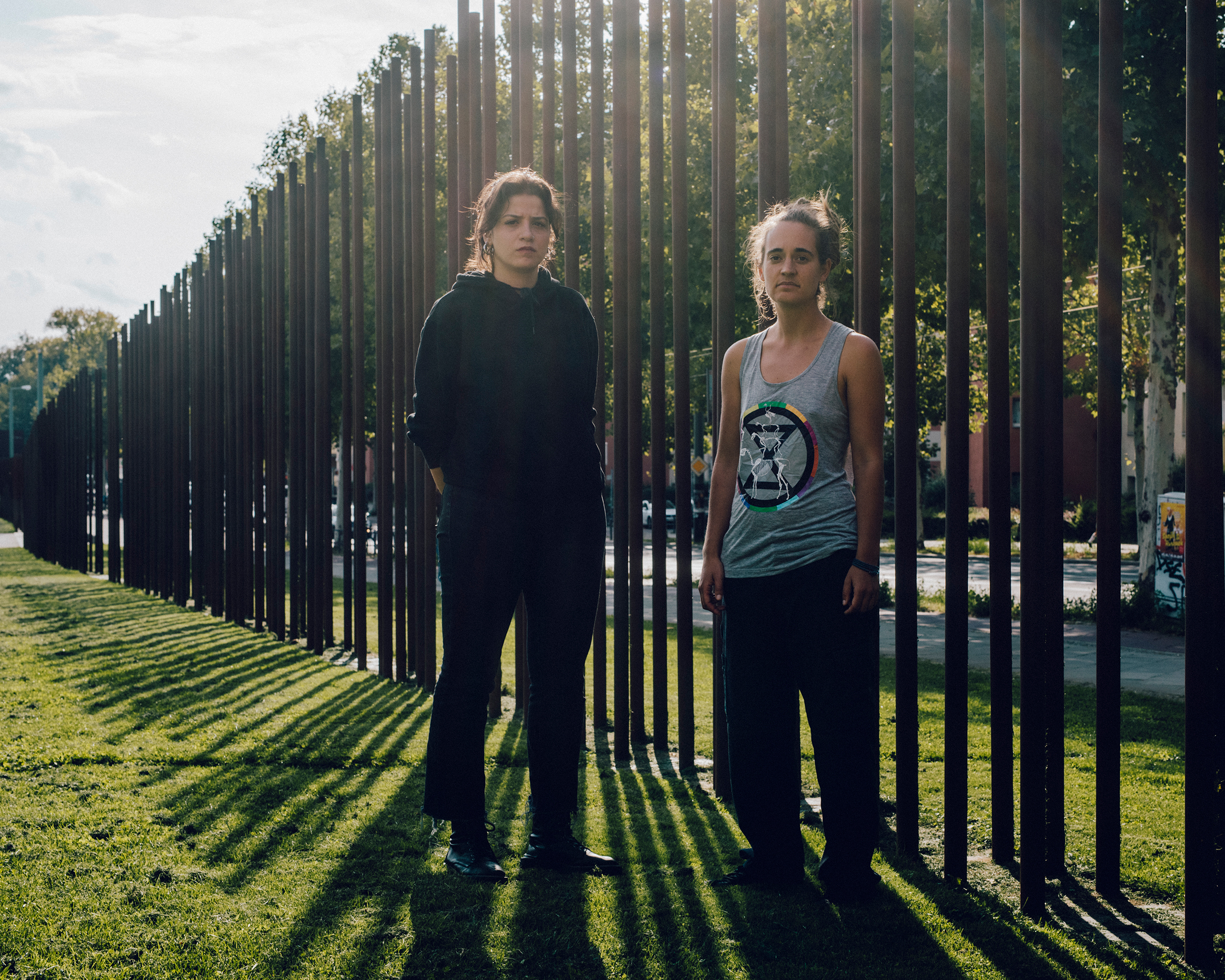
A year later, after receiving asylum in Germany, Sara returned to Lesvos and put her lifeguard skills to work as a rescue swimmer for a non-profit helping migrants in distress to reach the shore. In August 2018, police arrested her and four other members of the non-profit on human smuggling, trafficking, fraud and money laundering charges, among others. Police accused them of profiteering from helping migrants — charges they deny. Their two rescue boats were confiscated, and each spent more than three months in Greek prisons until being released on bail in December.
Sara and her colleagues each face up to 25 years in prison if convicted in trials that have yet to be scheduled. “They think if you criminalize humanitarians and make volunteers disappear, refugees will stop coming,” she says.
It’s true that migrants today are arriving at a slower rate than in 2015, but processing centers remain overwhelmed. More than 10,000 arrived in September, leaving one reception center on Lesvos operating at five times capacity. People are still dying off the Mediterranean coast, too — at least 1,090 had died as of early November this year, according to the International Organization for Migration.
“The only thing criminalizing humanitarian aid does,” says Sara’s lawyer, Zacharias Kesses, “is to maximize the number of people drowning in the Mediterranean.”
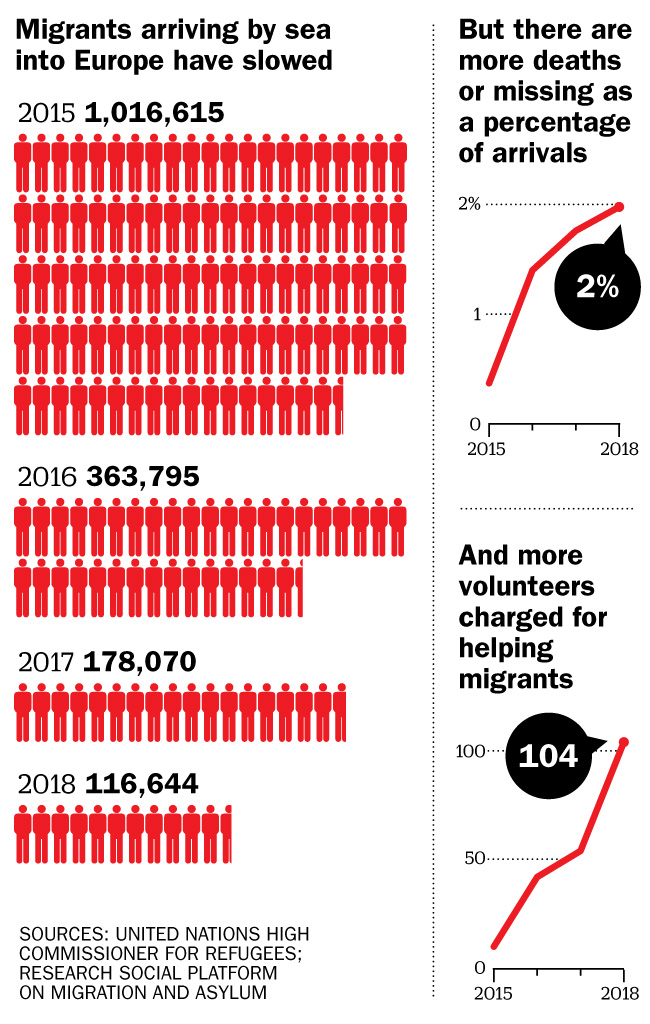
Most of those drownings — around 700 — have occurred on the route to Italy, where Carola Rackete, another aid worker, faces prosecution after a dramatic sea rescue that captured world attention. In early June, Rackete, 31, was patrolling international waters between Libya and Italy in her boat, the Sea-Watch 3, when she got word that a plane had spotted an overcrowded migrant boat drifting nearby. Rackete turned toward the coordinates and, as she drew closer, saw that the engine on the rubber dinghy was sputtering. It would only take one puncture or sudden weight shift to tip its 53 passengers, none of whom wore life jackets, into the sea.
Rackete says she had no option but to bring the migrants on board the Sea-Watch 3 and take them to Italy. “We would have broken quite a few laws returning them to Libya,” she tells TIME. “We couldn’t do that.”
As she headed toward the Italian port of Lampedusa some 150 miles away, the Italian government told Rackete she did not have permission to enter. For 17 days, she remained at sea with the migrants. Finally, on June 29, Rackete forced the Sea-Watch 3 into port, bumping an Italian patrol boat that tried to block her.
Once on land, the migrants she’d rescued were protected by European law. Rackete, on the other hand, had become a victim of it. She’s under investigation for resisting a warship and human smuggling, and if charged and convicted could face 10 years in prison. Italian authorities seized the Sea-Watch 3 to collect evidence, putting an end to its rescue missions.
International experts who’ve watched the evolving migration crisis say cases such as Rackete’s, Sara Mardini’s, and now Warren’s were years — even decades — in the making and can be blamed in part on ostensibly moderate European Union and former U.S. administrations, which they say set the stage for today’s populist wave.
In Europe, it was centrist politicians keen to be seen as tough on migration who responded to the influx in 2014 and 2015 by scaling back search and rescue operations. When migrants kept coming anyway, many E.U. governments refused to take them in, leaving the countries where they’d made landfall to carry the load.
That helped catapult far-right firebrand Matteo Salvini into the powerful position of Interior Minister, which oversees immigration, in Italy last year, says U.N. special rapporteur Agnes Callamard. “Italy has been receiving and holding refugees and migrants for years, without any support from the rest of Europe,” Callamard tells TIME. “Italians, when they elected Salvini, said enough is enough.”

Salvini, echoing Trump’s style of nationalist rhetoric, had campaigned on vows to close the doors on migrants, calling them “an army of benefit thieves and criminals.” His League party won 17.4 percent of the vote in the 2018 election. Salvini immediately closed Italian ports to search and rescue ships. In the next year, Italian authorities turned away dozens of boats carrying thousands of migrants and opened at least eight investigations into non-profits working with migrants, including Rackete’s.
Salvini lost his position amid government turmoil in August 2019, but recent polls indicate 33% of Italians favor his party above all others, putting Salvini in position to form a new government if an election is held soon.
In the United States, the Clinton Administration in 1993 began concentrating border enforcement at high-traffic urban ports of entry like El Paso, Texas, and San Diego. The idea was to deter migrants by steering them away from the heavily policed areas and leaving them nowhere safe to cross, says Wayne Cornelius, emeritus professor at the Mexican Migration Field Research Program at the University of California, San Diego. “Border Patrol planners had counted on the deserts and the mountains as their friends because it was assumed that migrants would not risk their lives crossing in such areas,” Cornelius wrote in an emailed statement to TIME. “This assumption proved totally false.”
Instead, like the migrants who continued making their way to Europe by sea despite the dangers, migrants arriving from Mexico began taking their chances in the vast expanses of desert. The deadliest stretch lies in Arizona. Of the more than 7,200 deaths recorded by U.S. officials over the past 20 years along the U.S.-Mexico border, 38.3 percent have occurred there, according to a recent Amnesty International report on the criminalization of aid workers.
Ajo sits about 40 miles north of Trump’s border wall. It’s surrounded by nature: a wildlife refuge to the west, a national monument directly south, and the desert and mountains to the north and east. The area’s remoteness is a draw for migrants hoping to avoid detection as they make their way north. It’s also the reason that many of them die on the way. So far this year, more than 90 sets of skeletal remains have been found in three of the areas that have long been the focus of groups like No More Deaths.
By the time of his arrest, Warren had been living in Ajo five years, finding it the perfect spot for studying the impact of the border on the land and people straddling it. With a PhD in geography, he was a lecturer at Arizona State University and was able to combine his research trips with volunteerism for groups assisting migrants.
That all changed on the afternoon of Jan. 17, 2018, when the agents surveilling the aid workers’ base, a building known as the Barn, arrested him. The agents have said they believed Warren was explaining to the two migrants how to evade border patrol, which would constitute a crime. Warren says he’d simply been helping the men obtain medical care, which is not a crime. Hours earlier, No More Deaths had released surveillance footage which it said showed Border Patrol agents kicking and emptying jugs of water left by volunteers for passing migrants.
Seven months earlier, Warren had been charged with littering and unlawfully entering a nearby wildlife refuge — federal misdemeanors — after driving onto the land and leaving supplies for migrants who are known to cross the area. That year, at least eight No More Deaths volunteers, in addition to Warren, faced similar misdemeanor charges. Charges against four of them were dropped earlier this year. The other four were convicted and sentenced to 15 months unsupervised probation. All eight were fined $250.
Customs and Border Protection, the agency that oversees U.S. Border Patrol, didn’t respond to TIME’s request for comment.
Warren doesn’t consider himself an activist, just a “normal human being” who can’t bear the thought of people dying alone in the desert when a jug of water, some beans, or a warm coat could save them. “You have blisters, you’re dehydrated, you’re cold, you’re hot, you’re tired — of course I’m going to provide that care, provide that relief,” he says. “It’s a little different than like going and protesting the wall being built.”
“Activist,” he says, “is not a term that I’ve earned.”
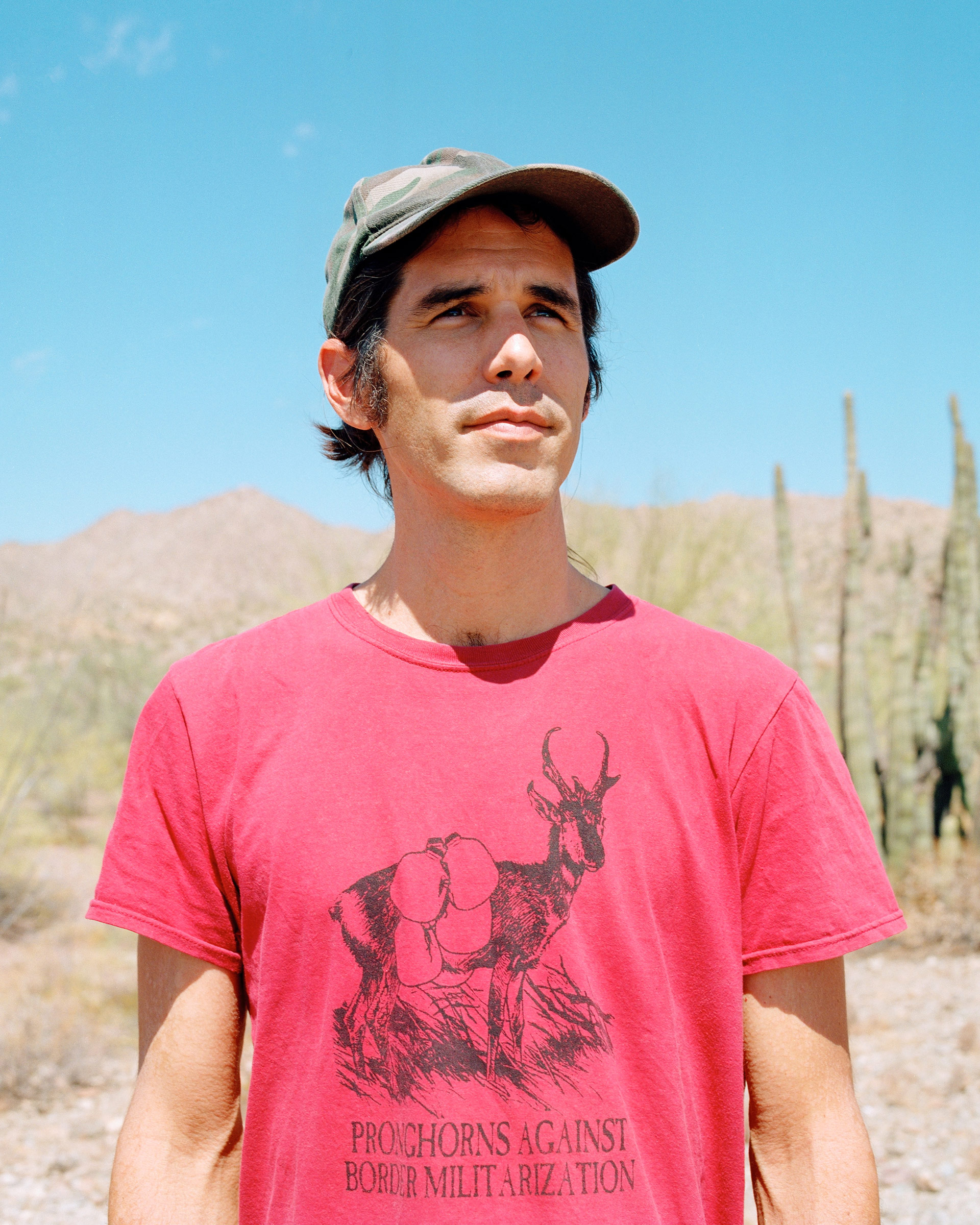
Asked by his attorney, Greg Kuykendall, to explain to the judge presiding over his misdemeanor trial last May why “a handsome 36-year-old man is wandering around the desert with all these humanitarian aid groups,” Warren explained that it was his “sacred duty” to prevent more deaths. “It is unconscionable to me, and it requires me to act and to do something,” he testified in his own defense.
There was no mention of politics, but they’re already are playing into the Nov. 12 trial. Prosecutors have asked the judge to bar Warren’s defense from mentioning Trump, his administration, or its border policies in court, saying this could be prejudicial. The judge hasn’t ruled on the motion.
Warren says his volunteer efforts continue, but Sara Mardini and Carola Rackete have been forced to stop. Mardini is back home in Germany and barred from entering Greece, at least until her trial. Rackete’s Sea-Watch 3 remains in the Italian government’s hands. And the IOM says over 2,600 migrants have died while trying to cross international borders to reach safety.
More Must-Reads From TIME
- The 100 Most Influential People of 2024
- Coco Gauff Is Playing for Herself Now
- Scenes From Pro-Palestinian Encampments Across U.S. Universities
- 6 Compliments That Land Every Time
- If You're Dating Right Now , You're Brave: Column
- The AI That Could Heal a Divided Internet
- Fallout Is a Brilliant Model for the Future of Video Game Adaptations
- Want Weekly Recs on What to Watch, Read, and More? Sign Up for Worth Your Time
Write to Jasmine Aguilera/Ajo, Arizona at jasmine.aguilera@time.com and Billy Perrigo/Berlin at billy.perrigo@time.com